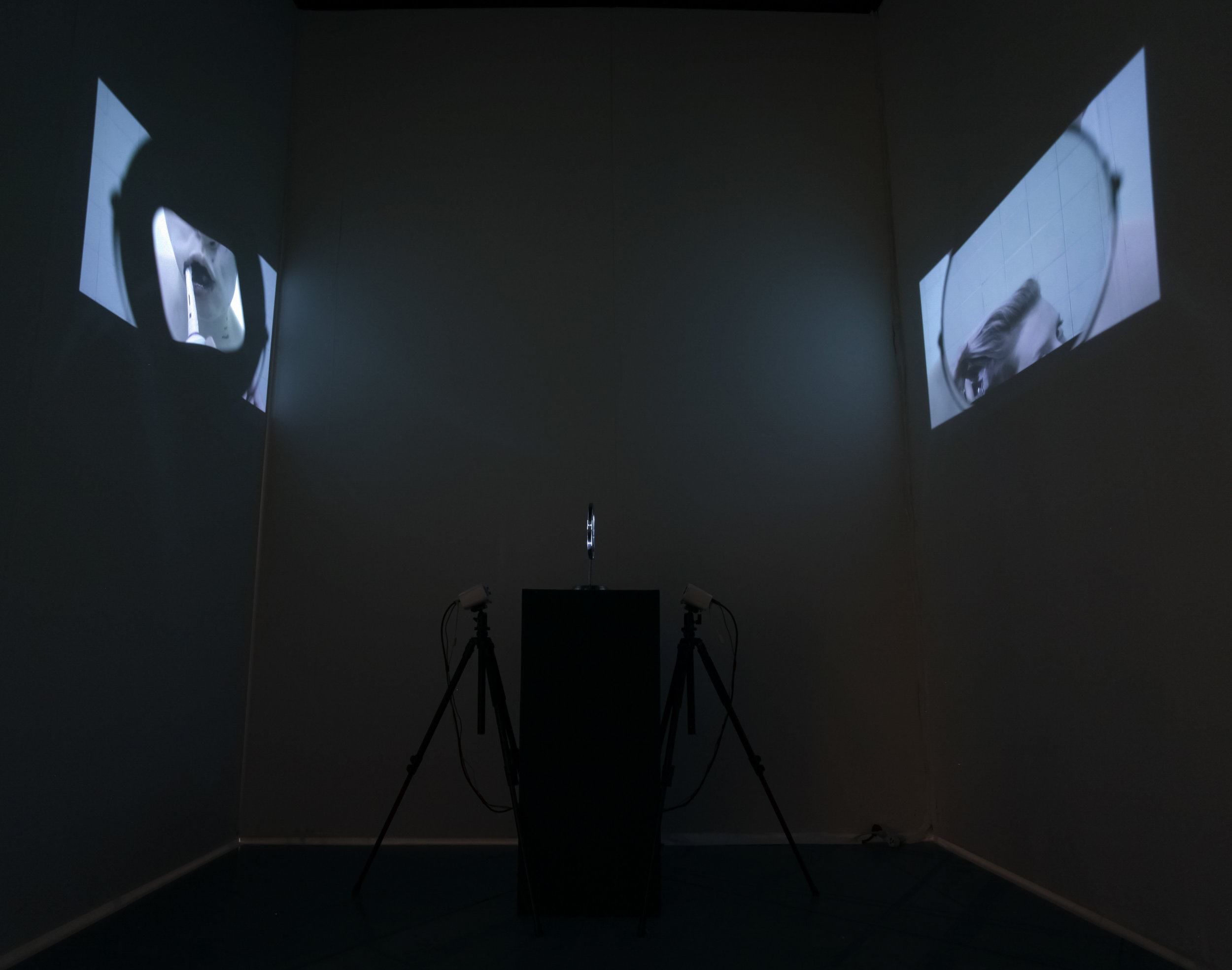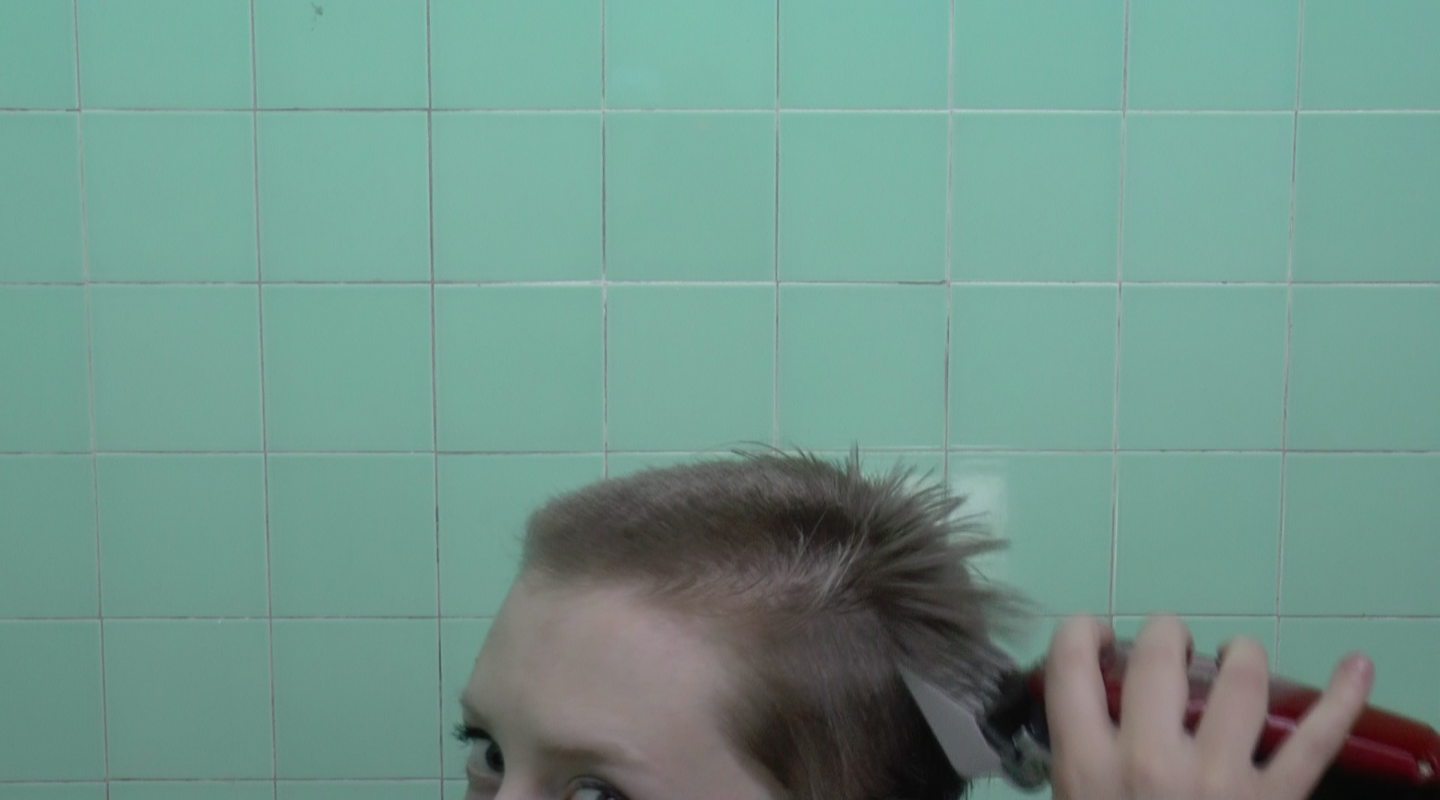Endless Scopophobia
Endless Scopophobia is a rumination on the exhaustion of “keeping up appearances” within a culture that privileges cisheteronormativity.
Endless Scopophobia
Video installation with double sided mirror and mini-projectors
4:33 minutes, 5:38 minutes
2015
This installation juxtaposes the mirror and the camera, two objects that are respectively associated with feminine vanity and the male gaze. A double-sided vanity mirror sits on top of a pedestal. The pedestal is flanked by two mini-projectors that are mounted on top of camera tripods. Each device projects a different video onto the opposing sides of the vanity mirror. The mirror catches these projections and simultaneously reflects each video back onto the wall. Due to this reflecting process, the videos are visible through the silhouette of the round vanity mirror.
In the video on the left, the artist’s face is visible from the mouth down. Garski slowly brushes their teeth with an electric toothbrush and black charcoal powder while singing a song by The Velvet Underground called "Candy Says." The song is written from the perspective of Candy Darling, an actress and a trans icon who was the muse of Andy Warhol and The Velvet Underground in the late 60s. In the song, Darling describes her experience living as a transwoman and her desire to be seen as herself by others. In the video on the right, Garski is visible from the forehead up, their eyes occasionally peaking at the spectator. They shave their head with an electric buzzer while singing the same tune.
These projected videos run on a continuous loop. The electric toothbrush and buzzer echo one another, creating a mechanical hum that fills the installation space. At times Garski’s vocals align and at other times they are distinctly separate, creating an infinite canon.
The title “Endless Scopophobia” references the psychoanalytic term “scopophobia,” a morbid pathological fear of being looked at or stared at by others. This stands in contrast to the more commonly known, “scopophilia,” a pathological experience of sexual pleasure derived from looking.







